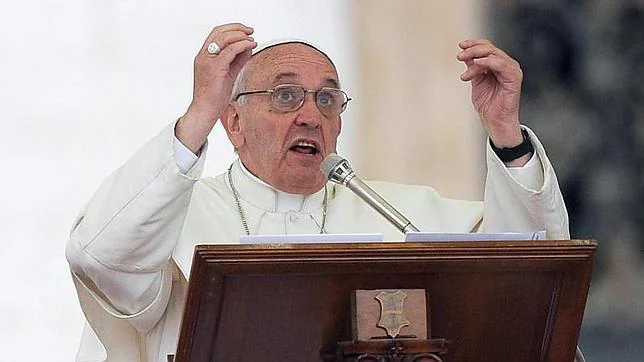Francis: "The way of the Church is not to condemn anyone for eternity"
There are some uncomfortable truths that we would like to forget…to make things easier. Though there is certainly no benefit derived from this mentality, some people persist in it, thinking that by the fact of insistently denying the truth, it will just cease to exist.
Since such truths are what real pastors should make the most efforts to preach about – if, in fact, we wish to work for the salvation of souls – it is opportune to ask ourselves certain questions: By any chance may the Pope change a revealed truth? Perhaps the Church cannot eternally condemn, but what about God? Should preaching about hell cease? After death can’t one still repent? Does God, who is good, really chastise eternally?
Francis
We will finally be clothed in the joy, peace and love of God, completely, without any limit, and we will come face to face with Him! (cf. 1Cor 13:12). It is beautiful to think of this, to think ofHeaven. We will all be there together. All of us. It is beautiful, it gives strength to the soul. (General Audience, November 26, 2014) |
Teachings of the Magisterium
Table of Contents
Sacred Scripture– Eternal condemnation in the words of Christ
Synod of Constantinople (543)– The punishment of the demons and of impious men is eternal
Catechism of the Catholic Church– Unquenchable fire is reserved for those who refuse to believe and be converted
– The souls of those who die in a state of mortal sin descend into hell, where they suffer eternally
Compendium of the Catholic Church– In what does hell consist?
Catechism of Trent– The damned are tormented with unclean spirits in eternal and inextinguishable fire
Vatican Council II– At the end of the world, those who have done evil will come forth unto resurrection of judgment
John Paul II– Hell and eternal damnation: The state of those who definitively reject the Father’s mercy
Pius XI– Jesus declared to the Jews that the Father bestowed judicial power on Him – to impose punishments which no one can escape
Pius XII– The greatest disgrace is grave sin, by which one becomes worthy of eternal chastisement
– Before God and men, the Church has the sacred duty to preach about hell and to teach it without any mitigation
Synod of Valence III (855)– Wrath and indignation eternally: for those who do not obey the truth
International Theological Commission– The Church believes that the definitive state of damnation awaits those who die burdened with grave sin
Pelagius I– The wicked are given to eternal and inextinguishable fire, that they may burn without end
Saint Robert Bellarmine– After death there is no place for repentance, and out of hell there is no redemption
Saint Alphonsus de Liguori– Rash confidence in the mercy of God sends more souls to hell than his justice
Saint Thomas Aquinas– The condemnation of the reprobates is bitter, just and everlasting
Saint Francis de Sales– What makes hell intolerable is the fact that suffering can never have end: an eternal night which gives birth to eternal despair
Saint Catherine of Siena– If he does not amend his life, he will be eternally condemned with great reprimand and reproach
Saint Irenaeus of Lyon– They are themselves the cause of their inhabiting eternal darkness
en.denzingerbergoglio.com
|
